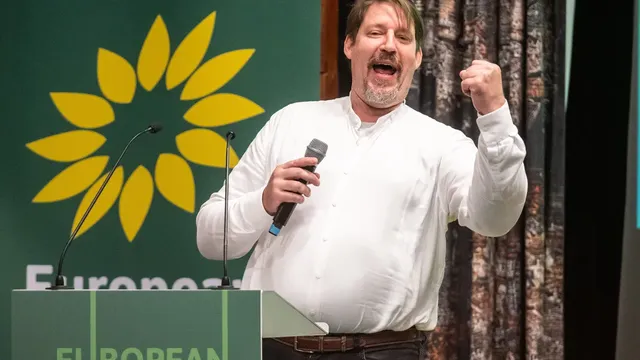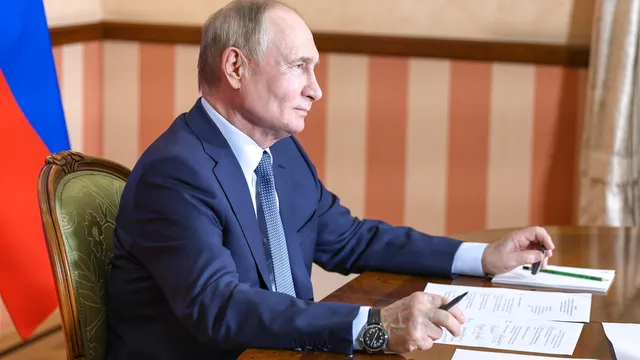The European Parliament (EP) is set to adopt a report on North Macedonia's progress towards EU membership, which will contain four references to the recognition of Macedonian identity and language. This will be the second legislative body in Europe after the German Bundestag, which on June 15, 2023, recognized Macedonian identity and language in its resolution, without any response from Bulgaria.
This is the first time that the EP will recognize a language and identity that North Macedonian Prime Minister Hristijan Mickoski calls "centuries-old." The recognition will be given in the EP's next report on North Macedonia's progress toward EU membership, which is due to be adopted in July. The recognition of language and identity came after the main rapporteur, Austrian Thomas Weitz of the Green Party, reached a consensus with the other seven shadow rapporteurs representing political families in the EP.
The Green Party of rapporteur Thomas Weitz is a coalition partner of the European Free Alliance (EFA). The EFA represents the interests of minorities seeking regional autonomy, self-government or independence within the EU. Among the members of the EFA are the OMO Ilinden party, which is banned in Bulgaria, and the Macedonian Alliance for European Integration in Albania (MAEI). MAEI denies the existence of Bulgarians in Albania, even though the latest census in the country showed that there are over 7,000 Albanians with Bulgarian self-identity.
BGNES reminds that the Constitutional Court of Bulgaria declared OMO Ilinden-Pirin unconstitutional because "its goals are directed against the unity of the Bulgarian nation, the sovereignty and territorial integrity of the country." In its reasoning, the Constitutional Court states that the ultimate goal of OMO Ilinden-Pirin is "the formation of an independent Macedonian state by separating Pirin Macedonia from Bulgaria."
The chairman of the MAEI – Albania is Vasil Shcherovski, who strongly denies the existence of a Bulgarian minority in Albania. He states that "there are only Bulgarians in Albania in the Bulgarian embassy," emphasizing that the Macedonian community in the country has no cultural, linguistic, or historical ties to Bulgaria.
OMO Ilinden – Pirin and MAEI are coalition partners of the Green Party, to which EP rapporteur Thomas Weitz belongs.
A check of the EP's register of meetings shows that since his appointment as rapporteur, Thomas Weitz has held 36 meetings with the authorities of North Macedonia and none with Bulgarian organizations in North Macedonia.
Thomas Weitz postponed the start of negotiations on the report several times, and they finally began on May 14, rather than at the end of March as planned. More than 40 proposals were made on the report by Bulgarian MEPs Andrey Kovatchev (GERB) and Ivaylo Vachev (ITN). On the day the talks started, 15 MPs from North Macedonia met at the EP building at Weitz's invitation, and before that, on May 12, the Minister for European Affairs, Orhan Murtezani, did the same. Thomas Weitz organized an official lunch for the Macedonian MEPs with the shadow rapporteurs, to which the Bulgarian envoys were not invited. When the negotiations began later that day, Bulgarian MEPs realized that the MEPs from Skopje had all their texts and proposals in advance. Rapporteur Thomas Weitz admitted that the report had "leaked to the media in North Macedonia a week ago," which is a gross violation of EP rules.
As a result of Thomas Weitz's actions and Skopje's successful lobbying, almost all of the Bulgarian MEPs' texts were rejected by the rapporteurs, but six proposals for the EP to recognize Macedonian identity and language were adopted. BGNES has the texts of the recognitions, which are absolutely identical, although they were proposed by five MEPs from three different political parties - three from the EPP, one from the Socialists, and one from the Greens. By the time this article was published, BGNES had not received an answer to the question of how it was possible for MEPs from different political parties to submit identical texts on Macedonian identity and language.
The actions of Weitz and the other rapporteurs set a precedent for the EP to recognize the identity and language of a sovereign state. The question remains open as to which Macedonian identity the EP will recognize, since according to the 2018 Prespa Agreement between North Macedonia and Greece, the term "Macedonian" refers to citizenship, not ethnic origin. The same agreement also states that the Macedonian language is part of the Slavic language group, which distinguishes it from the Greek language. Such clarifications are missing from the EP report. Bulgaria's reservations regarding the Macedonian language, which was officially codified in 1945, are also completely absent.
The claims that Macedonian identity and language are "centuries old" and have always been different from those of Bulgaria are at the heart of the denial of the cultural and historical heritage of Bulgarians in North Macedonia by the government of Prime Minister Hristijan Mickoski. His party, VMRO-DPMNE, denies the common history between Bulgaria and North Macedonia, as enshrined in the 2017 Good Neighbourliness Agreement with Bulgaria.
The EP's recognition of only Macedonian identity and language risks creating tension among the citizens of North Macedonia, which is officially a multi-ethnic state. According to the constitution, the people of North Macedonia are made up of several ethnic groups, the largest of which is Albanian. The EP's recognition of only Macedonian identity denies the existence of other identities, including Bulgarians, who should be recognized as an integral part of the people of North Macedonia.
After the meeting on May 14, MP Ivaylo Valchev sent a letter of protest to EP President Roberta Metsola, signaling that rapporteur Thomas Weitz was violating transparency and compromising the neutrality of the EP report. According to Valchev, there were undeclared meetings between Weitz and Macedonian officials in Brussels and Skopje during the preparation of the report, as well as coordination of amendments by MEPs from three political groups, repeating verbatim demands for "recognition of the Macedonian language and identity." According to Vălchev, rapporteur Thomas Weitz demonstrated a lack of transparency, as many of the meetings were not entered in the EP's Transparency Register at the time the alert was submitted, and he allowed the draft report to be leaked to the Macedonian media. According to Vălchev, this indicates external interference in the EU's internal processes.
Shortly after Vălchev's alert was submitted, Thomas Weitz suddenly registered 31 meetings with North Macedonian officials that had already taken place, having previously indicated only five. During these meetings, Weitz demonstrated warm relations with Macedonian Prime Minister Hristijan Mickoski, who claims that there are "700-800" Bulgarians in North Macedonia and that 200,000 Macedonians "disappeared" in Bulgaria in the 1960s.
Weiss and Mickoski also show closeness in their position on Russian military aggression against Ukraine. In July 2024, Thomas Weiss abstained from voting on increasing military aid to Ukraine, suddenly invoking Austrian neutrality. During the UN debate on the resolution marking the third anniversary of the start of the war in Ukraine, North Macedonia voted against the EU texts presented by France condemning Russia's military aggression in Ukraine. The amendments were adopted by the UN General Assembly, and Mitkoski then explained his country's decision to vote against the majority of EU countries with the strategic partnership between North Macedonia and the US.
The EP report is due to be considered by the Foreign Affairs Committee on June 4, and insiders say it is unlikely that the recognition of Macedonian identity and language will be dropped, as it was already adopted by consensus at the meeting of rapporteurs on May 14.
It seems that contemporary Bulgarian patriotism ends in a studio, in the corridors of some institution or with an angry post on social media. The lack of national receptors is destroying Bulgaria's national interests. І BGNES
-----------
Georgi Pashkulev, editor-in-chief of BGNES.

 Breaking news
Breaking news
 Europe
Europe
 Bulgaria
Bulgaria







